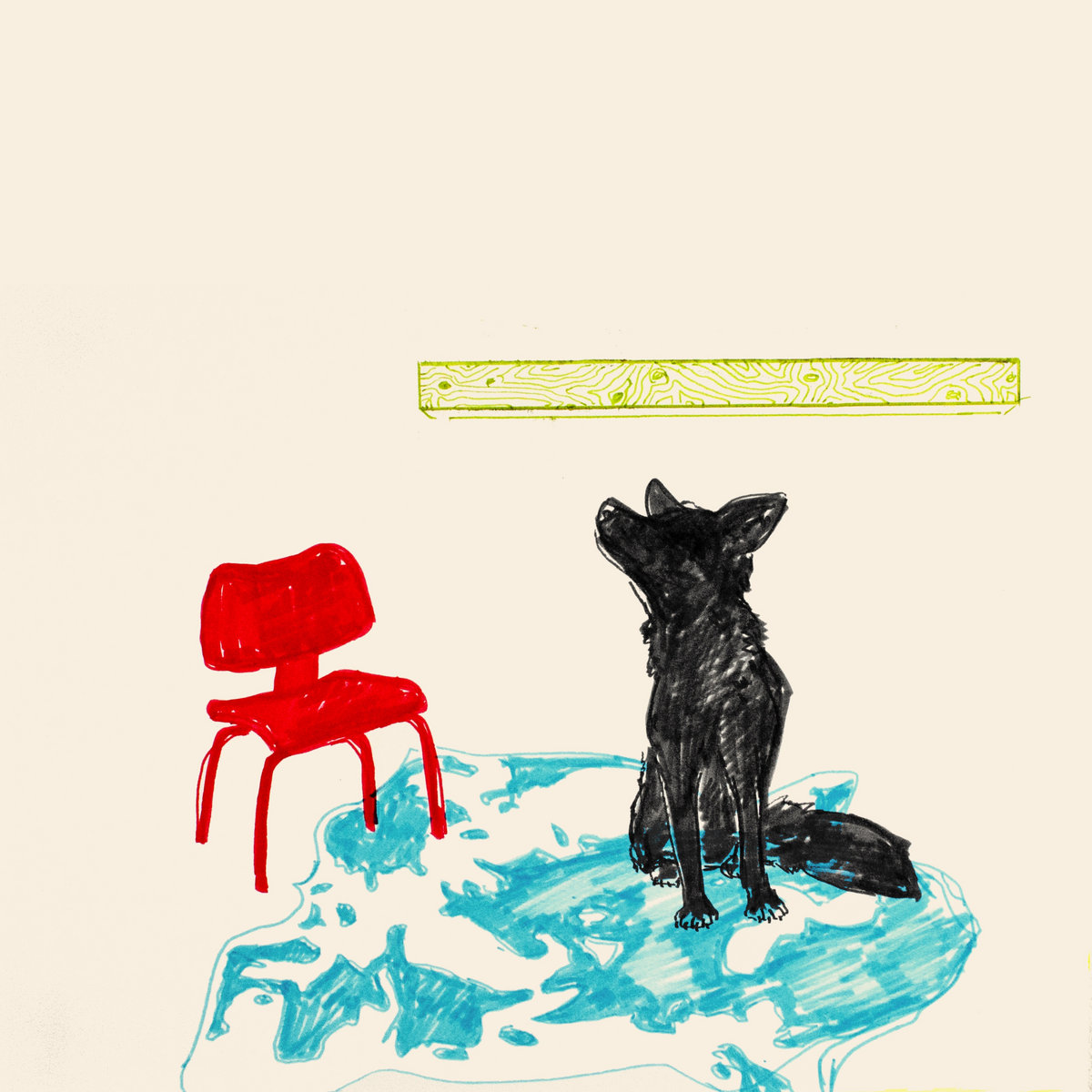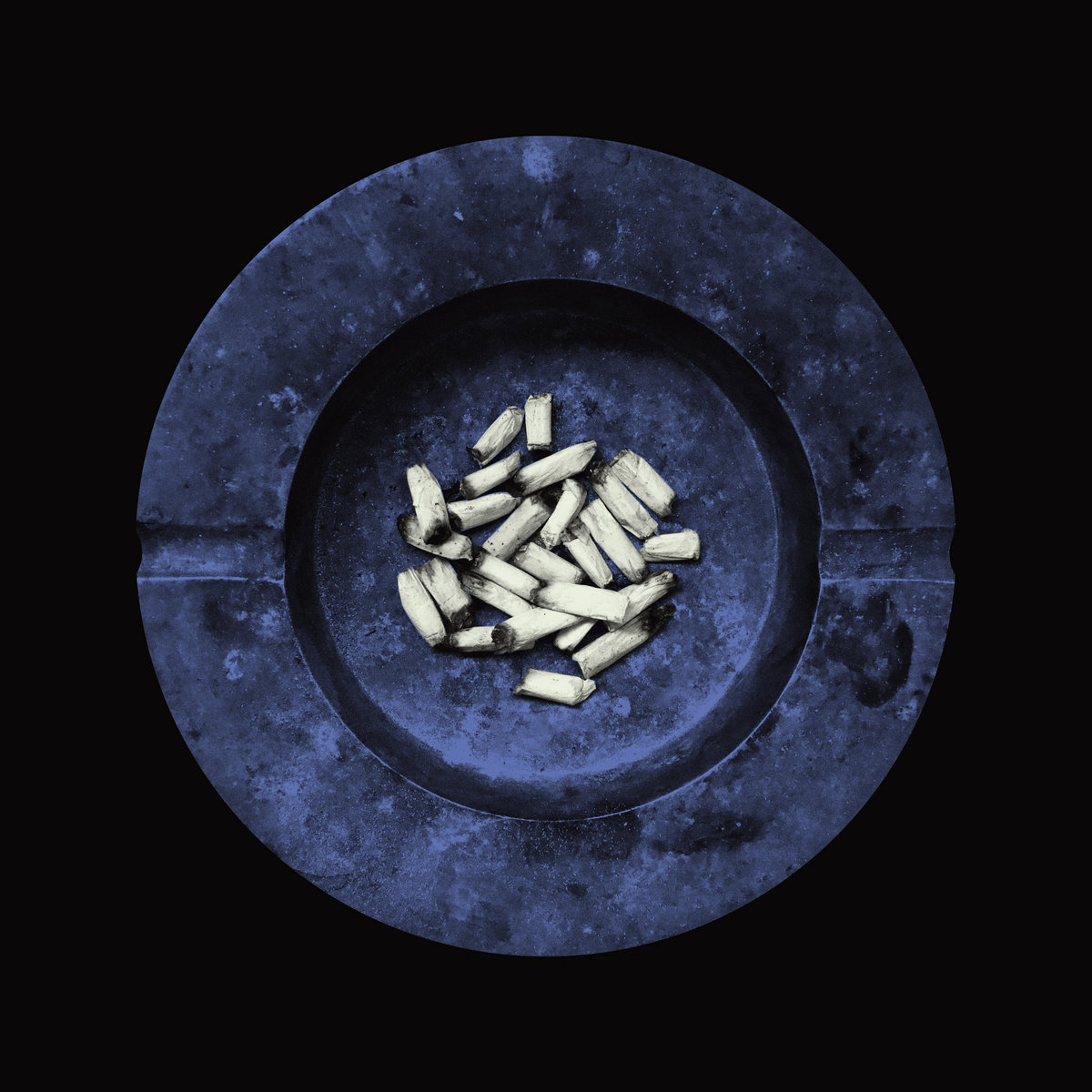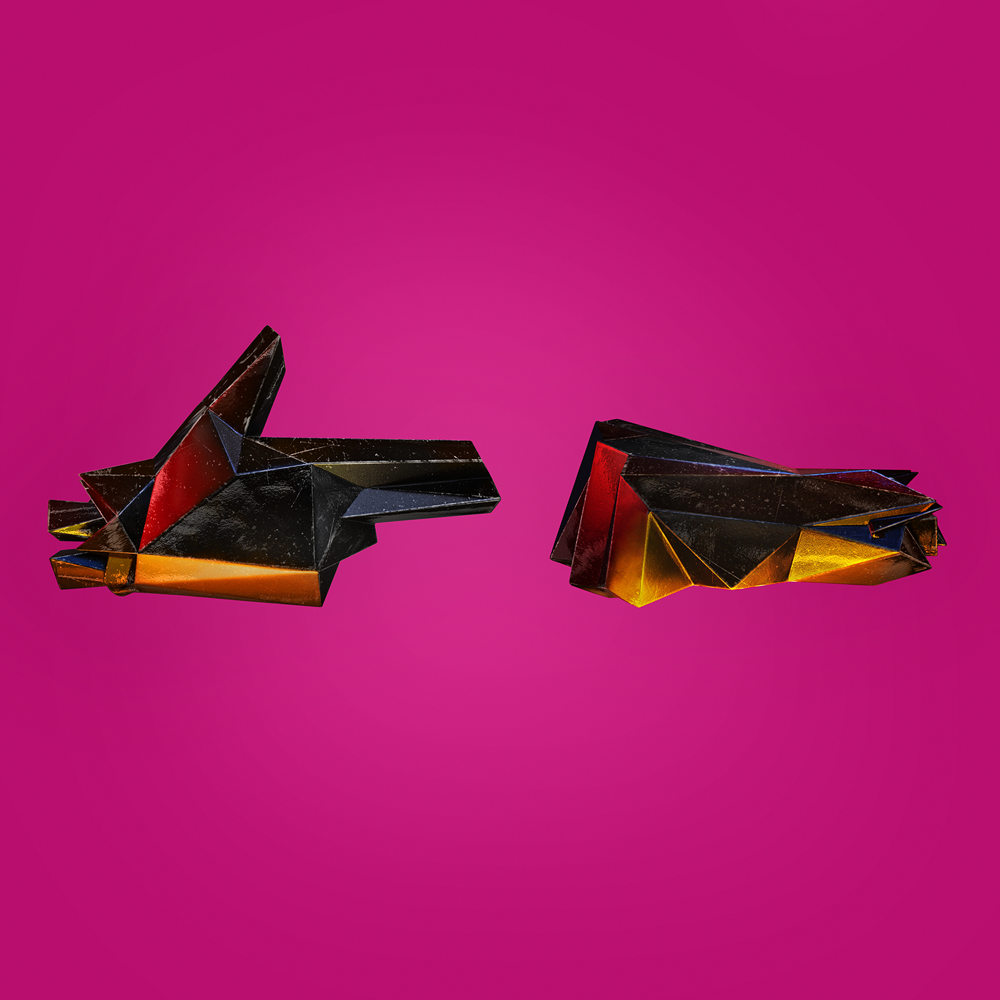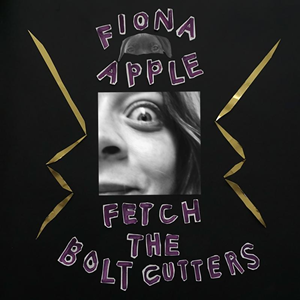 10. Haunted Painting – Sad13
10. Haunted Painting – Sad13
Sad13’s debut LP Slugger was a shimmering pop triumph, but from the opening Jacob Marley-esque chain-clattering, sharp-edged moments of the album-opening “Into the Catacombs,” it’s clear Sadie Dupuis is going for a more complex, moodier tone on Haunted Painting. Dupuis knack for crafting a killer chorus remains fully intact (see: the drama-reveling “WTD” and the shoulder-shaking “Hysterical”), but there’s a sonic flavor density beyond the sugar binging throughout the album (as the stomach-grumble of a bass tone on “Hysterical” illustrates). The chorus variation on a track like “With Baby” excites as Sadie varies up the presentation (quasi-guitar soloing into the final pass is a particular treat). The instrumental chances taken are much bolder: one of the poppiest tracks (“Ghost of a Good Time”) pivot hard into a breakdown that feels like a drunken waltz on a ship in a storm only to suddenly be jolted awake by the chorus again as if mainlining a synth IV; “The Crow” leaning into Speedy Ortiz-esque darker guitar experimentation; and “Take Care” takes a fanciful symphonic tone akin to Actor-era St. Vincent. As always, Dupuis wrestles with the specters in her mind with a lyrical nimbleness that allows moments tender, humorously flippant, and cuttingly critical to land with a intelligent heft. Haunted Painting is hardly haunting, rather it further confirms that Sad13 is a spirit that we should welcome haunting our headphones for years to come.
 9. Melee – Dogleg
9. Melee – Dogleg
Let it be known that 2020 was the Year of the Lost Mosh Pit. In a year spent mostly without concerts, the extreme contact of moshing seems almost like a death wish. And no band suffered from the lack of rowdy crowds cheering them on while slamming into each other as much as Dogleg. The Detroit group’s album Melee practically demands to be played in a small sweaty room filled with its noisy triumphalism. Dogleg’s standout feat is the way Melee manages to stay full-throttle throughout its 10 tracks without it ever feeling tired or excessively unrelenting. There’s just enough instrumental variation backing Alex Stoitsiadis’s frayed and emotive yelps to keep things rolling from track to track without snags. The band’s core touches on the feel of some of the best melodic hardcore punk of the late ’90s/early ’00s, but with a more metal sense of noise. Depending on the track it might lean into something that feels a touch more math rock (“Kawasaki Backflip”), Dillinger Four-esque (“Bueno”), heavy emo (“Headfirst”), or even gives off the faint hint of Japandroids or Foo Fighters-in-hard-rock-mode. Hopefully, we’ll get a chance to bounce around to “Wrist,” pump our fists high to “Prom Hell,” and experience Melee in its full live glory someday.
 8. NO DREAM – Jeff Rosenstock
8. NO DREAM – Jeff Rosenstock
It feels fitting that in the year when we all had too much time with nowhere to go (and yet still – justifiably because of the mental toil of 2020 – often weren’t that productive with it), Jeff Rosenstock’s No Dream opens with “NO TIME,” a blistering ode to explaining away not changing into the person you want to be because of being “too busy.” The album by in large attempts to shake listeners out of the everyday haze of modern life to address the world around them. “No D R E A M” drifts along with lines about ignoring horrors of the war machine and government-forced family separations until it morphs into an almost militaristic march, then spring-boarding into a frenetic punk wake-up call. Elsewhere “Scram!” is a smirking ode to not listening to the out-of-touch voices of those who want you to stay complacent, and “Leave It In the Sun” wrestles with how hard it is to change and how easy it is to just give up. All the while, Rosenstock’s knock for melodic punk precision shines through, allowing even the lyrically downer moments (see: “State Line”) to resonate with a tinge of musical (frustrated) optimism. The journey of 1,000 miles starts with one step, and even though Jeff Rosenstock keeps twisting his ankle on that initial gait, he’s determined to keep at it.
 7. Shamir – Shamir
7. Shamir – Shamir
♫ Genre, genre, genre, genre, genre chameleon / You come and go, you come and go… ♫
Shamir’s self-titled LP thrills with its fluidity. The shifting styles not only across the album, but within individual tracks is a marvel. The key to the whole package is the smoothness of his emotive falsetto vocals, which effortlessly and seamlessly can flow from shimmering strength to soulful fragility. Having that tool in his arsenal allows Shamir to do whatever the heck he wants with his guitar and bass playing, and he takes full advantage of that. The album-starting “On My Own” blends twitchy electronics and a creeping indie rock guitar line, “Paranoia” brings the heft with a “Barracuda”-esque chunky riff, and the ethereal synth space of “I Wonder” makes Shamir sound like a benevolent extra terrestrial coming down to bless us. Most amusingly, “Other Side” manages to seem one moment like a dusty country punk tune before soaring into a brighter-than-the-sun banjo-driven chorus. Throughout the process, Shamir feels fully comfortable in his voice whether singing about self-reflection, relationship issues, or promising not to feast on too many unhealthy snacks (in the Urban Dictionary sense) on “Diet.” When the only knock you can even begin to muster against Shamir is that you wish there were just more of it (the album only has eight songs, plus three momentary buffer spoken interlude tracks), you’ve got yourself a winner.
 6. Stay Alive – Laura Jane Grace
6. Stay Alive – Laura Jane Grace
There’s often grace to be found when songwriters strip things down to the basics. In the case of Stay Alive, there’s literally Grace to be found. Laura Jane Grace stripped things back on her latest solo album, and the result is her most emotionally resonant and personal album since Against Me!’s 2014 tour de force Transgender Dysphoria Blues.
“The Swimming Pool Song” kicks things off with one of those old school folk tunes that effectively deals in uncomplicated by poetic direct metaphors (comparing herself to empty pools and burning churches). “Shelter in Place” captures the quarantine moment of desperation, while the quiet picking of “The Mountain Song” lays the groundwork for a peaceful reflection world-worn sobriety. It wouldn’t be a proper album from Grace without at least on social screed, and “Hanging Tree” delivers with a bare bones, bitingly sarcastic ode to the the warped reality of the American dream (who knew “God is good and God is great / Now get the fuck out of the USA ” could make for a catchy chorus?). But there’s also space for musical levity in LJG’s world even when lyrically in the dumps, as the pure ’80s pop rock of “SuperNatural Possession” illustrates. As the best album made entirely in pandemic times, Stay Alive truly feels like a collection of survival hymns to help us all get through this.
 5. RTJ4 – Run the Jewels
5. RTJ4 – Run the Jewels
In a year when the government stiffing the underclass really was foregrounded (joke stimulus checks and all), at least we could count on El-P and Killer Mike giving us all something for free that actually felt substantive in the form of RTJ4.
At this point, the ease with which the duo delivers razor-edged social critiques overflowing with swagger almost allows them to be taken for granted. Thankfully, El-P’s musical backings are enough to jolt the passivity out of the listening experience, whether it’s the beat that sounds like it’s stomping on your chest in an attempt to cave it in on the anti-cop ride-or-die “Yankee and the Brave” or the sly Cheshire-grin hook of the agents of chaos ode “Ooh LA LA.” As if there were any doubt, the group lean into being the villain in certain sectors (“Goonies Vs. ET”), as long as it means they can put systematic oppression on blast (“Waling in the Snow,” “Ju$t”). RTJ4 manages to sound like there’s danger around every corner – even employing Mavis Staples (“Pulling the Pin”) and jazz sax (“A Few Words for the Firing Squad”) as unlikely touches of tension – and in a year that saw widespread protest against continued, unrelenting racist police violence, that sadly proved to be true. And Run the Jewels continued to defiantly resonate as prophetic truth tellers.
 4. Impossible Weight – Deep Sea Diver
4. Impossible Weight – Deep Sea Diver
It’s always a bit of a disconnect when wildly talented, badass musicians focus in on sharing their near-crippling insecurities. There’s obviously nothing wrong with them doing so, but you almost want to reach through you headphones and shake the person, yelling, “Do you have any idea how cool you are?” That’s a long way to say the while singer/guitarist Jessica Dobson might not be lyrically brimming with confidence on Impossible Weight, but she lets her musicianship and bandmates do the heavy lifting resulting in an album carries itself with the assured poise of something knowing it’s simply stellar.
“Shattering the Hourglass” set the sprawling tone with a palette lush with deep, rich, complex sonic colors based around keys, essentially making listeners wait for Dobson to fully unleash her greatest strength: her otherworldly guitar prowess. But the wait isn’t a long one, as “Lights Out” follows up with a shredding showcase. But the key to Deep Sea Diver’s success is the way the band employs its skills. Too often, expert guitarist focus on showing off their abilities by playing the most complex things possible without really caring about the listeners’ experience or the actual music. Jessica shreds in a musical way (be it to hype things up on “Lights Out” or to create a atmosphere on “Eyes Are Red (Don’t Be Afraid),” always in service to the song instead of the song merely being a platform for showy noodling. It helps that her partner in crime (and life), drummer Peter Mansen has a perfect feel for his other half’s artistic whims and knows when to pull back or let loose appropriately to fill the space. When Dobson wrestles with her internal demons on tracks like the floating daydream of “Wishing,” it makes songs like the chunky-guitar, fist-pumping triumph of “Impossible Weight” (featuring a marvelous assist from the always-tremendous Sharon Van Etten) stand out as moments of triumph in overcoming the stress of burdensome expectations. Impossible Weight may bear the scars of imposter syndrome, but a tune like “People Come, People Go” serve as validations (“Right where you are is right where you belong”). We’re allowed to take up space. Yes, that includes you, Deep Sea Diver.
 3. Punisher – Phoebe Bridgers
3. Punisher – Phoebe Bridgers
Everything felt adrift in 2020, and no album captured that adrift feeling quite like Punisher. Phoebe Bridgers’s songwriting might be a bit less penetrable and a bit more guarded on her second LP, but it’s a purposeful picture of untethered young adult confusion. No one can touch Bridgers’s ability to capture reality, dark humor, and pain via distinctly millennial turns of phrase: whether its defeatedly settling for a man-made wishing star (“Chinese Satellite”), the folks song through a haze of bong realizations of “Garden Song” (“And when I grow up, I’m gonna look up / from my phone and see my life”), too late revelations on “ICU” (“Cause I don’t know what I want / until I fuck it up”), or sarcastic, cynical doom-sing-a-longs on “I Know the End” (“Windows down, scream along / to some America First rap country song”). The move away from a folkier musical backings (apart from “Graceland Too”), allows Punisher‘s emotional notes hit different. The pop gem “Kyoto” (the catchiest song about daddy issues ever?), soars to its immaculate heights because of the strings and horns that come in at the chorus lift it up. The end of “Chinese Satellite” hits like a gut punch because everything drops out except the string arrangement and vocal layering. And “I Know the End” needs to build slowly from minimalism to a noisy to cacophonic chaos to close things with appropriately epic bombast. Punisher fades away in cascading, throat-shredding scream therapy until Bridgers is left alone gasping and screaming vainly in isolation. If that’s not the aural embodiment of 2020, I’m not sure what is.
 2. Saint Cloud – Waxahatchee
2. Saint Cloud – Waxahatchee
Katie Crutchfield has spent a decade penning fantastic songs as Waxahatchee, but Saint Cloud still feel like a momentous achievement. The album finds her fully shaking off the traces of her indie rock roots and blossoming into a new torchbearer for the great American singer-songwriter tradition. Crutchfield isn’t one for flash, but the subtle details are always in line. One of her standout abilities as a writer is her sense of place. Waxahatchee songs feel like the exist in the lived-in corners that Katie has trodden.
Saint Cloud finds her voice resonating with previously unmatched confidence, in part because she seems to have leaned into embracing her native Southern accent like never before. You can hear it in the sweet honey-drip vowel warmth on “Can’t Do Much,” the type of tune that can only be authentically written by someone who’s found true love. The sophistication in her simplicity radiates on “Fire,” which sonically embodies sinking away on a Southern porch swing on a humid late afternoon. Crutchfield doesn’t shy away from her own lyrical crosshairs, as the examination of her own non-angelic qualities comes to the forefront on “Hell.” The album’s most magical moments come on the perfectly paced “Lilacs,” where Waxhatchee’s slow-burning gorgeous lyrical paintings give way to magical bursts choruses with little more than an expertly placed cymbal crash kicking off the extraordinarily resonant transition. And while it’s not Saint Cloud‘s apex, “Arkadelphia” is most indicative of Crutchfield’s skills as the song is jammed with folksy Americana hallmarks (far drives, fireworks, trailer parks, burnt out lightbulbs, open air, etc.) yet still manages to not feel stereotypical in the least because of her unabashed sincerity. In less deft hands, it’s a tune that could feel trite and hacky. But with Waxhatchee? There’s no worry of that ever being the case.
 1. Fetch the Bolt Cutters – Fiona Apple
1. Fetch the Bolt Cutters – Fiona Apple
Fetch the Bolt Cutters crackles like a lit fuse. It’s a work of tension and anticipation, and Fiona Apple herself is the bomb about to explode and devastate with her cutting lyrical shrapnel. Apple has never been the bashful sort, but on Fetch the Bolt Cutters she unloads years of pent up hostility in a wave of sophisticated musical mutilation. But despite having one of the most acclaimed song-writers around as it’s core, the element that makes the album achieve greatness is an unexpected source: the rhythm section. Drummer Amy Aileen Wood, bassist Sebastian Steinberg, percussionist Davíd Garza, and Apple herself craft a percussive soundscape across the album that makes every line Fiona sings ever more urgent. The albums jazzy sparse drumming, throbbing bass heartbeat, and layer beats, stomps, claps, etc. actualize the omnipresent stress in a way that feels almost closer to a Foley artist bringing these scene to life than typical song structure.
With this backing, Apple is able to unleash her raw fury from the jump. Even ostensible love songs like “I Want You to Love Me” (with its panicked seal lion-esque yelps to close things out) and the “Cosmonauts” snap into focus with a guarded dreaminess of someone who’s life experience has grated them down to the point where mutual affection is only a emotion to be experienced via hushed whispers or frantic screams of passion. Fiona doesn’t shy away from professing that she’s been through some rough shit, from being scorned and ignored (“Rack of His”) to feeling a strained mutual bond with another woman for having to deal with her problematic ex (“Newspaper”). “Under the Table” serves as an act of rebellion, a venom-tongued anthem about refusing to be silenced, and the titular “Fetch the Bolt Cutters” – with it’s gripping metallic clangs – feel like Tune-Yards filtered through the filter of a psychological thriller. But it’s key to note that these voices in Apple’s head that she’s bellowing out for the world to hear isn’t some sign of week instability or clashing split personalities, but instead paints a picture of mental complexity and thoughtful analysis delivered via a swirling musical thunderstorm.
But that’s not to say Fetch the Bolt Cutters is some kind of grueling endurance test. In fact, it’s uplifting feminist moments might be its high points. On “Shameika,” Apple extols the importance of a girl in her middle school perhaps unknowingly being her lighthouse in the storm, helping her through the darkness of manic fights with her own brain simply with an acknowledgement that she had potential. And while Fiona displays an expert knack for the art of repetition throughout the album, “Relay” is the crown jewel in that regard. The tune lays out the importance of women uplifting one another as if teammates rather than falling into an endless cycle of tearing each other down as if rivals, but does so with a stomp clap refrain that feels like a modernized (and joyous) schoolyard patty-cake game. It’s a message for all ages delivered in a manner of childish bliss. It’s a twinkle of hope in the dark world that Fetch the Bolt Cutters lays out, but it feels significant, like the seed that will sprout into a better world for the future in the wake of Apple’s musical explosion.

